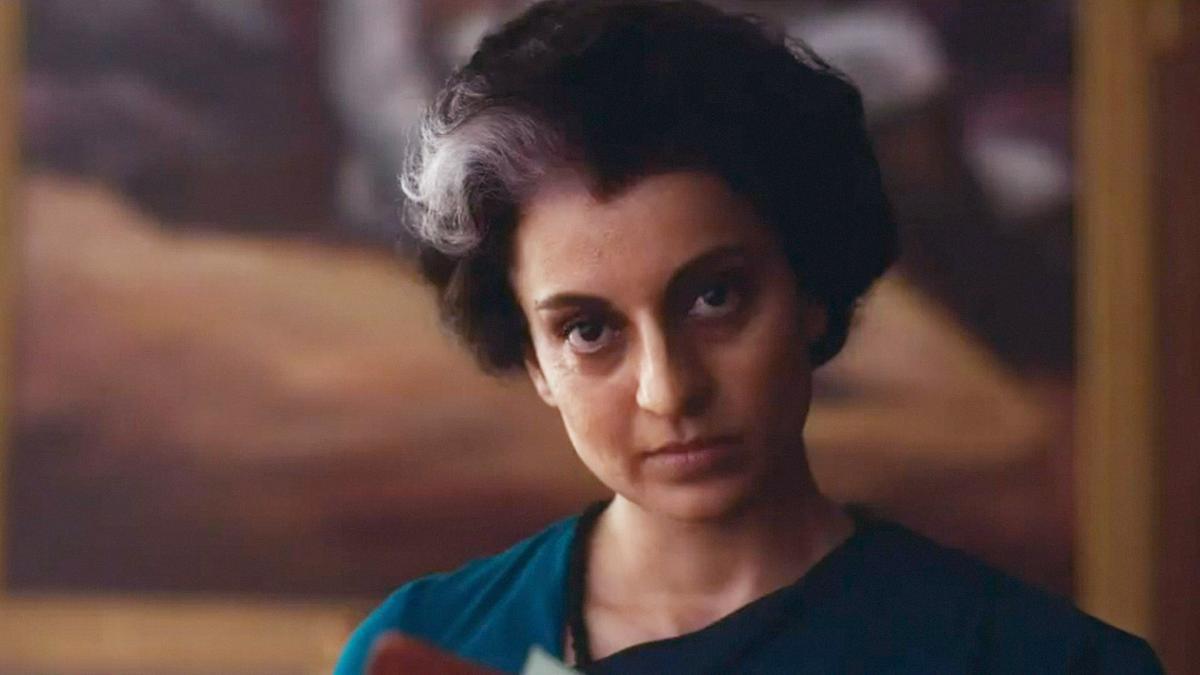
The Central Board of Film Certification (CBFC) is at the center of yet another controversy, this time involving the highly anticipated film “Emergency,” a biopic directed by and starring Kangana Ranaut, which also portrays the life of Indira Gandhi. The film’s release is reportedly being delayed due to the CBFC’s hesitation in handing over the required certification. The actor-turned-Member of Parliament voiced her displeasure and concerns on X, formerly known as Twitter, on Friday evening.
Kangana Ranaut claimed that the CBFC is withholding the clearance certificate for her film due to the anticipated content, which has already led to threats against the board’s staff. These threats have, according to Ranaut, played a significant role in the board’s reluctance to issue the certification required for the film’s release.
When approached for comments, CBFC chairperson Prasoon Joshi did not immediately provide a response. However, records available on the CBFC’s official website indicate that the film “Emergency” has passed certification but required a few modifications before it was cleared. These modifications are reportedly minor, including the addition of on-screen smoking warnings, muting a derogatory term shouted by a crowd after the “death of a public leader,” and changing the English term “Mr. President” to the Hindi equivalent “Rashtrapati ji.”
Furthermore, for scenes that feature statements by former U.S. President Richard Nixon and archival footage from Operation Blue Star, additional documentation was mandatory, as per the CBFC’s stipulations.
It remains unclear how and why the CBFC is withholding certification for a film it has ostensibly already approved. According to the CBFC’s 2024 certification rules, “[a] copy of the certificate of a film referred to in sub-rule (1) shall accompany the film and be prominently exhibited in the theatre on all days on which the film is exhibited therein.” This rule raises the possibility that the board might be holding back the actual certificate forms despite having approved the film, thus technically obstructing its legal screening.
This incident is not an isolated one, as the CBFC has faced allegations of irregular behavior concerning film certification multiple times this year. Earlier in 2023, the film “Monkey Man,” directed by and featuring British actor Dev Patel, reportedly faced a similar predicament.
. The CBFC, rather than outright rejecting the film, simply refrained from screening it for their examining committee, effectively resulting in a de facto ban. This situation was highlighted in a report by The Hindu.
The film industry has long been critical of the CBFC’s operational opacity and resistance to controversial content. Sources within the industry argue that these actions contradict the very purpose of the CBFC, which is supposed to facilitate rather than hinder the release of films. Some in the industry view the situation as a bureaucratic maneuver to delay releases without offering any clear explanations, thereby causing financial and reputational damages to filmmakers.
With “Emergency” set to narrate a critical period in Indian history through the eyes of one of its most dynamic leaders, Indira Gandhi, the anticipation around the film is palpable. Ranaut has historically not shied away from controversial subjects, and her previous work reflects a penchant for challenging entrenched viewpoints. This film promises to tread a fine line of historical depiction and dramatic interpretation.
Despite these obstacles, the film community stands by Ranaut, who remains undeterred. During her social media address, she appealed to fans and proponents of freedom of expression to voice their support. She expressed her commitment to seeing the film released, reiterating that viewing this historical piece is the right of the public.
Public sentiment appears divided. While some view the CBFC’s actions as a necessary measure to maintain societal peace, others see it as a blatant infringement on creative freedom and an overreach of bureaucratic power. The debate gained further traction when historian and scholarly circles voiced their concerns that the suppression of such films amounts to stifling academic discourse.
As the controversy continues to unfold, the release of “Emergency” hangs in the balance. For now, all eyes rest on the CBFC and how it will navigate this contentious issue, which not only questions the board’s regulatory framework but also its commitment to transparency and supporting India’s cinematic ambitions.












